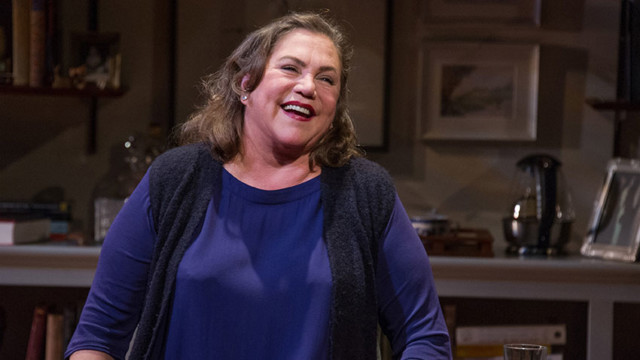Not that having loved ones die is even comparable. But this is close.
I can’t even bring myself to accept that he will become the most powerful man in the world, much less type his name.
I read Joan Didion’s The Year of Magical Thinking quite a while ago but I’ve never really felt the full brunt of the first few lines of her masterpiece until Donald Trump was declared President elect of my adopted home.
Ahmad Coo is a producer and copy editor for the Global Business America show on CCTV America. His analysis represents his views alone.
Life changes fast.
Life changes in the instant.
You sit down to dinner and life as you know it ends.
I try to recall that Tuesday, the eighth of November, but all my mind remembers is a slow-growing, opaque panic. Those 16 hours in the office were probably some of the hardest of my mostly forgettable career. As the polls rolled in throughout the day, that feeling of doom grew and took hold.
When I walked out of the building around 2:45 AM, the streets were empty but the air felt heavy, almost miasmic. I was already in a daze and it just made that journey home that much more unbearable. That American dream, the one that had us moving towards a harmonious future, was dead, dead, dead. My mind became blank like the way Joan Didion’s did when she witnessed her husband’s death from a massive heart attack as she prepared dinner. It was so sudden that she first thought it was a joke.
That’s how her book began, Didion recounting the horrible details of the death of her writer husband John Gregory Dunne. Their adopted daughter, Quintana, would also die because of a prolonged illness. Within the span of a little over two years, Didion would lose the two people she loved the most.
Didion finished The Year of Magical Thinking a year and a half after Dunne died and is primarily focused on her husband. She published Blue Nights in 2011 to honor the memory of her daughter. The twin tragedies would have broken anyone, and I think I would have gone insane if I had to suffer such terrible losses.
But instead of a mournful book, she wrote one that was almost unsentimental and devoid of cliché. The sentences are almost terse but it renders all her ideas immediate and, most importantly, infused with humor. For instance, in the section where she’s describing the events in the emergency room right after a social worker informed her that her husband has died. In that moment, Didion notes the conversation between the advocate and the presiding physician: “She’s a pretty cool customer.”
And then she writes: “I wonder what an uncool customer would be allowed to do. Break down? Require sedation? Scream?”
That same line had the audience giggling in the stage version of The Year of Magical Thinking, which is playing at Washington D.C.’s Arena Stage. The one-woman play is fronted by Kathleen Turner who plays Joan Didion. Didion herself wrote the script for the stage version.
While it has several humorous parts, the play’s material itself is the stuff of terror. It was difficult to watch Turner conjure what emotions Didion must have felt during that horrible year. But despite the heaviness of the material, the book and the play itself was catharsis for the author.
Didion resorted to ‘magical thinking’ to prevent her descent into madness. In psychological terms it’s the practice of trying to link an event to another happening without any causality. For instance, it’s raining heavily this morning because I ate too much cheese last night. Or if I were a romantic I’d think that if I keep feelings for someone who’s left me for another person, she/he will eventually come back to me. Of course, plausibility is relative depending on what kind of reality you live in.
But for simplicity’s sake, let’s go with a more nuanced meaning of magical thinking, which one psychologist says is believing in things more strongly than either evidence or experience justifies.
For example, I know my cat Alfie meows every time I reach for a fresh can of cat food. He’s been doing this ever since I adopted him almost two years ago. So if I were to think magically, when I wake up tomorrow and head to the cupboard to fetch a can, I believe and expect with absolute certainty that Alfie will meow. If he instead starts talking and says, ‘I’d love some smoked salmon for breakfast’’, my reality would be shattered.
However, there are a lot of things in this life we need to believe without proof to function at all. You can’t expect one day to go to the top of your 22 floor office building and jump off and expect to float. You obviously know gravity will bring you back down to earth, literally and figuratively. Sometimes we just have to rely on magical thinking to keep ourselves sane.
In Joan Didion’s case, instead of going mad with grief and loss over the death of her husband, she decides to rely on magical thinking and believe that her husband will come back somehow, even though she knows that no one comes back alive from such a massive heart attack.
In the book, she explained how this process of magical thinking came about for her and why she insisted on being alone for the first night after Dunne’s death:
‘… my insistence on spending the first night alone was more complicated than it seemed, a primitive instinct. Of course I knew John was dead.’
She continues: ‘Yet I was myself in no way prepared to accept this news as final: there was a level on which I believed that what had happened remained reversible. That’s why I needed to be alone.’
Finally: ‘I needed to be alone so that he could come back. This was the beginning of my year magical thinking.’
In the stage version, Kathleen Turner (as Joan Didion) is talking about giving some of her husband’s belongings away after the funeral. She goes through a laundry list and decides to clear all of Dunne’s things out of her apartment, except for his shoes. Why? Because her husband would need shoes to walk around when he comes back.
Didion says the power of grief can make someone insane. But psychiatrists like Sigmund Freud and Melanie Klein believe this condition can be ‘overcome’. Magical thinking helped her deal with the death of her husband. She admits her thoughts were illogical, especially after she said she needed the autopsy to be carried out to determine the definitive cause of Dunne’s heart attack so they can travel back in time to prevent his death.
Ultimately the book and the play are works of bereavement and nostalgia. While magical thinking has provided Didion a buffer against terrible events and some humor, Didion’s grief is very much present in every sentence and spoken line. While the style is spare, her pain shines through her words elevating her work into a beautiful elegy.
The world is a cruel, unpredictable place and more often than not, it will break your heart and/or devastate your soul. But as human beings, almost all of us are born with an innate ability to deal with difficult, life threatening and transforming situations without losing our minds.
I’m a firm believer in doing everything you can to keep yourself sane whether it be drugs, therapy, hugs, religion, and yes, magical thinking. Resorting to such machinations don’t necessarily make us lesser or weaker beings. In the final analysis, they’re the tools that make us human.
At the conclusion of the play and the book, Joan Didion recalls a trip she took with her husband to Southeast Asia. They were trying to swim into a cave but it was proving difficult. To get into the opening, they had to wait for the waves to fall but with choppy seas it wasn’t easy get the timing right.
She writes: ‘I think about swimming with him into the cave at Portuguese Bend, about the swell of clear water, the way it changed, the swiftness and power it gained as it narrowed through the rocks at the base of the point. The tide had to be just right. We had to be in the water at the very moment was right. We could have this only done this a half-dozen times at most during the two years we lived there but that is what I remember. Each time we did it I was afraid of missing the swell, hanging back, timing it wrong. John never was. You had to feel the swell change. You had to go with the change.’
She couldn’t have written it any better. After reading the last few pages, it made me feel I could deal with life under a four-year Trump presidency. The tides of today aren’t agreeing with us, but we’ll eventually get that timing right.
 CGTN America
CGTN America
 Kathleen Turner starts in the play “The Year of Magical Thinking” PHOTO/Arena Stage
Kathleen Turner starts in the play “The Year of Magical Thinking” PHOTO/Arena Stage

